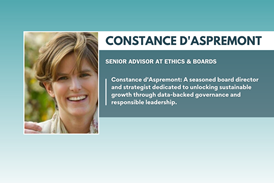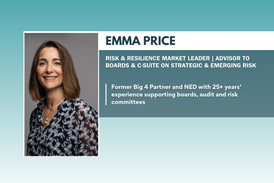The availability and reliability of crucial supply chain data is preventing organisations from operationalising their corporate purpose and meeting their environmental, social, and governance (ESG) goals.

The views come from research published by Coupa Software, which confirms that businesses are taking dedicated steps to improving ESG practices and to bring down their risk exposure.
Improving energy efficiency was cited by 94% of the respondents involved in the research. Among other high-ranking ESG practices were: reducing greenhouse gas emissions; eliminating modern slavery; improving supply chain diversity; and reducing deforestation.
On the other hand, the study also hinted at a lack of sufficient visibility into supply chain data. Furthermore, inadequate technology is leaving businesses falling short of realising ESG targets.
Nearly all of the businesses polled said they agreed that accurate ESG data of their suppliers is important to understand supplier risk, though just over half (53%) said they did not fully agree that data on their suppliers’ ESG credentials is sufficiently available.
Nearly two-thirds of respondents said they do not have strong enough technology capabilities to assess ESG risk and compliance of both Tier 1 (third-party suppliers) and Tier 2 suppliers (the suppliers of their third-party suppliers).
Practically all (95%) of those organisations involved in the research expressed a wish to speed up responses to external disruptive events, yet more than two-thirds (71%) said they lack access to data that enables this type of agility and said it would take weeks to months to find new suppliers that meet their ESG standards.
Donna Wilczek, senior vice president of product innovation and strategy at Coupa, said:
“Even with all the will in the world, no business can fully realise their ESG goals and make a meaningful difference if they do not possess accurate and timely data on which to make decisions.”
The research did, however, identify ways in which companies can overcome ESG data gaps, with greater industry-wide data sharing and collaboration offering the fastest pathways to progress.
Of the businesses polled, 99% said that if key ESG supplier data were shared openly and instantaneously with prospective buyers, it would help them more accurately assess their ESG risk and compliance. Further, 97% agreed that greater cooperation on key ESG data is needed between businesses and suppliers.
Steve Banker, vice president of supply chain services at ARC Advisory Group, said:
“Organisations are rightly making ESG a priority and have begun to make changes to their supply chains to become more sustainable.
“While many are still early in their journey and marching towards net zero goals, it’s clear that quicker access to supplier information can aid supply chain planning and help businesses better respond when disruption arises, Steve Banker added.
“With this type of data collaboration, organisations can confidently make choices that reduce costs and carbon, as well as risk,” Steve Banker continued.
Donna Wilczek concluded:
“If [businesses] truly want to operationalise their ESG strategy and corporate purpose, they need transparency technologies that go beyond mere reporting, and enable buyers and suppliers to collaborate and exchange data as a community for a common cause.”
ESG World Forum
Part of the Digital Trust Europe Series
ESG World Forum is a two-day, in-person event taking place as part of the Digital Trust Europe series. 2021 was widely considered “the year of ESG investing.” Given the importance society has placed on ESG issues following COP26, we are likely to see this growth trend continue throughout 2022.
ESG World Forum will bring together a range of leading ESG experts and executive speakers from a range of industries as every major company is considering ESG strategies.
FIND OUT MORE ABOUT ESG WORLD FORUM









No comments yet